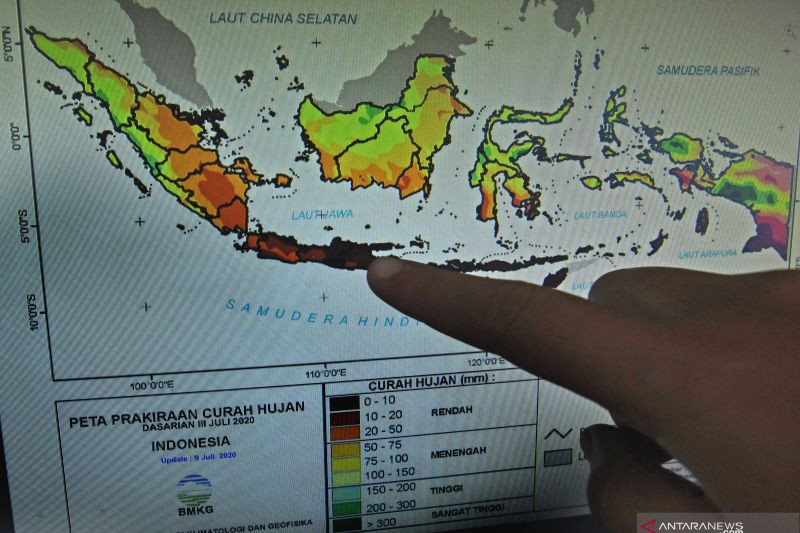Bali Belly: A Comprehensive Guide To Diagnosis And Recovery

Table of Contents
Understanding Bali Belly: Causes and Symptoms
What is Bali Belly?
Traveler's diarrhea, often nicknamed "Bali Belly" due to its prevalence on the island, is a gastrointestinal illness characterized by loose, watery stools. It's caused by consuming food or water contaminated with bacteria, viruses, or parasites. Bali, with its tropical climate and diverse culinary scene, presents a higher risk of exposure to these pathogens compared to many other regions. The sheer variety of street food and the potential for less stringent hygiene standards can contribute significantly to the incidence of traveler's diarrhea.
- Common bacterial causes: Escherichia coli (E. coli), Salmonella, Shigella, Campylobacter
- Viral causes: Norovirus, Rotavirus, Adenovirus
- Parasitic causes: Giardia lamblia, Entamoeba histolytica, Cryptosporidium
- Typical symptoms: Frequent, watery diarrhea; nausea; vomiting; abdominal cramps; fever; bloating; headache; and dehydration. The severity of symptoms varies greatly depending on the causative agent and the individual's immune response.
The incubation period for different pathogens varies, ranging from a few hours to several days. Bacterial infections often manifest within one to three days, while viral infections can take longer. Parasitic infections may have even longer incubation periods, sometimes taking weeks to show symptoms. Differentiating Bali belly from other gastrointestinal issues requires careful observation of symptoms and may necessitate medical consultation.
Diagnosing Bali Belly: When to Seek Medical Attention
Self-Diagnosis vs. Professional Help
While many cases of Bali Belly resolve on their own within a few days, self-diagnosis has limitations. Relying solely on online information can be risky, especially since severe cases require immediate medical intervention. Misdiagnosis can lead to delayed treatment and potential complications.
- Signs requiring immediate medical attention: Severe dehydration (little to no urination, dry mouth, dizziness), bloody diarrhea, high fever (above 102°F or 39°C), persistent vomiting (inability to keep down fluids), severe abdominal pain.
- When to consult a doctor or travel clinic: If symptoms persist for more than three days, if you experience severe dehydration or any of the warning signs above.
- Tests that may be conducted: Stool samples to identify the causative agent. This is crucial for determining the appropriate treatment, especially if antibiotics are considered.
Untreated Bali belly can lead to significant complications, including severe dehydration, electrolyte imbalance, and in rare cases, sepsis. Getting a diagnosis in Bali involves finding a reputable clinic or hospital. Many hotels can provide recommendations, or you can research international clinics in advance.
Treating Bali Belly: Effective Home Remedies and Medical Interventions
Home Remedies for Mild Cases
For mild cases of Bali Belly, focusing on hydration and rest is crucial. Avoid solid foods initially and gradually reintroduce a bland diet.
- Importance of staying hydrated: Drink plenty of clean water, clear broths, and oral rehydration solutions (ORS). Dehydration is a significant danger, so proactive hydration is paramount.
- Use of ORS solutions: Commercially available ORS packets are formulated to replenish electrolytes lost through diarrhea.
- Bland diet recommendations: The BRAT diet (bananas, rice, applesauce, toast) is often recommended due to its easily digestible nature.
- Over-the-counter medications: Anti-diarrheal medications should only be used with caution and under the guidance of a healthcare professional. They can mask symptoms and potentially worsen the condition if used inappropriately.
Medical Treatment for Severe Cases
Severe cases require medical attention and may necessitate stronger interventions.
- Antibiotics: Antibiotics are prescribed only when necessary and only by a doctor after determining the specific causative agent. Overuse of antibiotics can lead to antibiotic resistance.
- Intravenous fluids for severe dehydration: Intravenous (IV) fluids are crucial for rapidly rehydrating individuals experiencing severe dehydration.
- Medication for nausea and vomiting: Anti-emetic medications can help control vomiting and nausea, allowing the body to rehydrate more effectively.
Remember that all medications carry potential risks and side effects. Always follow your doctor's instructions carefully and report any adverse reactions immediately.
Preventing Bali Belly: Proactive Measures for a Healthy Trip
Food and Water Safety
Practicing safe food and water habits is the most effective way to prevent Bali belly.
- Drink bottled water only: Avoid tap water, ice made with tap water, and any drinks with questionable water sources.
- Avoid ice in drinks: Ice cubes can be made with contaminated water.
- Choose carefully cooked food: Opt for well-cooked, hot food from reputable establishments. Avoid street food that doesn't appear fresh or hygienically prepared.
- Avoid raw or undercooked seafood and meat: These are prime vehicles for bacterial and parasitic infections.
- Wash hands frequently: Wash your hands thoroughly with soap and water before eating, after using the toilet, and after touching potentially contaminated surfaces.
Other Preventative Measures
Vaccines and prophylactic medications, when recommended by a doctor, can offer additional protection.
- Typhoid vaccination: This vaccine protects against typhoid fever, a bacterial infection that can cause severe diarrhea.
- Hepatitis A vaccination: Hepatitis A is a viral infection that can also cause gastrointestinal symptoms.
- Prophylactic antibiotics: These are prescribed only by a doctor in specific circumstances and are not a replacement for good hygiene practices.
Maintaining a healthy gut microbiome through probiotics can also contribute to improved resistance against gastrointestinal infections. Discuss probiotic supplements with your healthcare professional before taking them.
Conclusion
Bali Belly can significantly impact your trip, but with proper knowledge and precautions, you can minimize your risk and ensure a healthy and enjoyable vacation. Remember to prioritize hydration, practice safe food and water hygiene, and seek medical attention if your symptoms worsen. By following the tips in this guide, you can conquer your Bali Belly worries and focus on experiencing the beauty of Bali. Don't let the fear of Bali belly stop you – plan ahead, take precautions, and enjoy your incredible Balinese adventure!

Featured Posts
-
 Wes Andersons Latest Style Without Substance A Review
May 28, 2025
Wes Andersons Latest Style Without Substance A Review
May 28, 2025 -
 Premier League Rivals Chase Promising Ligue 1 Player Arsenal And Newcastle In Transfer Race
May 28, 2025
Premier League Rivals Chase Promising Ligue 1 Player Arsenal And Newcastle In Transfer Race
May 28, 2025 -
 Rebecca Blacks American Music Awards Outfit A Shotgun Wedding Theme
May 28, 2025
Rebecca Blacks American Music Awards Outfit A Shotgun Wedding Theme
May 28, 2025 -
 Cuaca Bali Besok Dominan Berawan Hanya Beberapa Wilayah Hujan
May 28, 2025
Cuaca Bali Besok Dominan Berawan Hanya Beberapa Wilayah Hujan
May 28, 2025 -
 Liverpool Transfer News 25m Star Wants Reds Move But Agent Talks To Man Utd
May 28, 2025
Liverpool Transfer News 25m Star Wants Reds Move But Agent Talks To Man Utd
May 28, 2025
